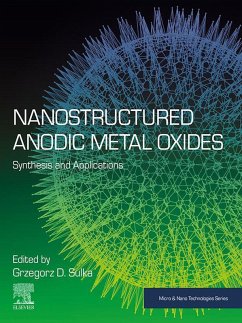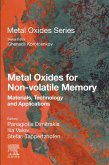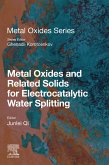During the past decade, great progress has been made both in the preparation and characterization of various nanomaterials and their functional applications. The anodization of metals has proven to be reliable for the synthesis of nanoporous, nanotubular and nanofibrous metal oxides to produce a desired diameter, density, aspect ratio (length to diameter) of pores/tubes, and internal pore/tube structure.
- Provides an in-depth overview of anodization techniques for a range of metals
- Explores the emerging applications of anodic metal oxides
- Explains mechanisms of formation valve metal oxides via anodization
Dieser Download kann aus rechtlichen Gründen nur mit Rechnungsadresse in A, B, BG, CY, CZ, D, DK, EW, E, FIN, F, GR, HR, H, IRL, I, LT, L, LR, M, NL, PL, P, R, S, SLO, SK ausgeliefert werden.









